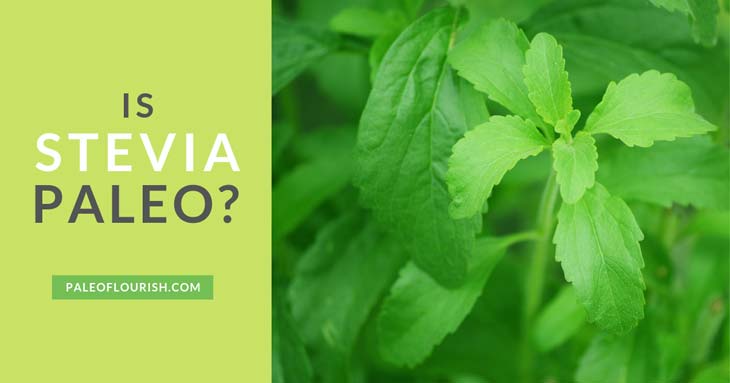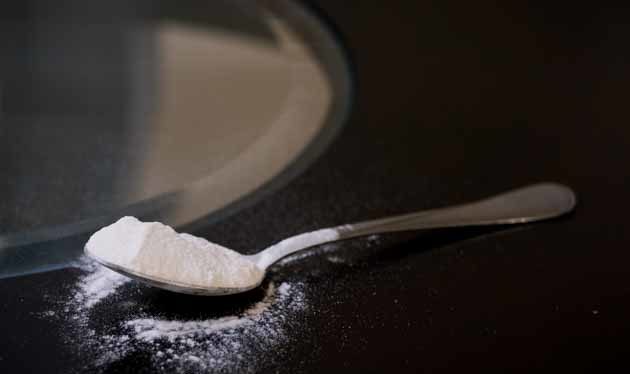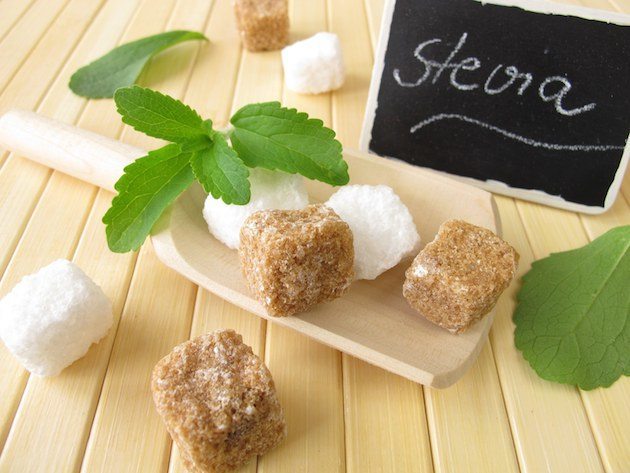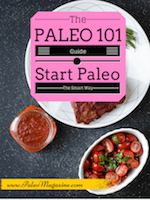Is Stevia Paleo? 5 Reasons Why Stevia Isn’t Paleo

You’ve probably heard about this rave “all-natural” practically zero-calorie sweetener called stevia (if you don’t know what it is then read this article). But is stevia Paleo?
Can you safely add it to all your baked goods, coffee, and tea, and be healthy while doing it?
That’s what this article will delve into.
Is Stevia Paleo?
The title of this article probably gives it all away – we don’t consider stevia to be very Paleo, although occasional use isn’t the end of the world!
Unlike some sensational articles, we don’t think stevia is dangerous or unsafe in any way (in fact, recent journal reviews point to the opposite and suggest that it can be beneficial for hypertension patients and diabetics). But, we do think there are good reasons for avoiding stevia nonetheless.
And here are the 5 reasons why we don’t think stevia is very Paleo:
-
-
-
May Prevent You From Curbing Sugar Cravings
Many people start a Paleo diet because they’re addicted to sugar and carbs. Unfortunately, switching from your regular sugar to stevia may worsen that sugar craving instead of cure it.
Because stevia (as opposed to raw honey) contains zero calories, your body is getting the sensation of sweetness (which your body ancestrally associates with getting safe nutrients and calories) while getting nothing.
Therefore, a bit later, your body will start craving sugars again (because it’s still deficient in nutrients).
-
May Affect Your Gut Bacteria
Jeremy and I are obsessed about healing our gut, and that means getting our gut bacteria back in order again! So, we try to avoid anything that could knock our gut out of order.
A recent study published in Nature suggests that non-caloric artificial sweeteners (the study was done with saccharin, sucralose, or aspartame) caused “dysbiosis and metabolic abnormalities” (dysbiosis of the gut refers to the shift in bacteria in your gut e.g., you may get too much of some and too little of another).
While the study did not investigate stevia, it is a possibility that we’d prefer to avoid since there are other options.
-
May Affect Your Body Sugar Levels
This is generally only an issue if you’re consuming stevia with very little other foods. Specifically this could be problematic in stevia-sweetened zero-calorie drinks like Zevia or black coffee/tea sweetened with stevia.
The sweet taste of the stevia will stimulate your body into thinking that it’s about to receive a dose of sugar. Your body clears the glucose from your blood stream (insulin levels go up) and when your body finds out that no glucose came into your body, adrenaline and cortisol production will go up to bring glucose back.
So, if you’re consuming stevia without anything else that contains glucose (e.g., a cup of coffee or tea sweetened with just stevia), then you could be placing undue stress on your body over and over again since drinking these zero-calorie drinks is something we do a lot of.

-
May Contain Other Non-Paleo Ingredients
This is a huge reason, but I placed it at number 4 on the list because you can find good sources of pure stevia that doesn’t contain non-Paleo fillers like dextrose, erythritol, xylitol, etc., if you look hard for it. So, if you do want to purchase stevia, then make sure to read the ingredients carefully. These are 2 brands that I’ve found to be pure – this powdered stevia and this liquid stevia (just contains water as additional ingredient).
-
May Affect Hormonal Balance
I left this reason until last because it is perhaps the most controversial. As Sarah Ballantyne notes in The Paleo Approach, studies in rats have shown that stevioside (the main type of glycoside found in stevia – see this article for more information about glycosides, steviosides, and Reb A) may alter hormone balance. In fact, one traditional use of stevia in South America was to control fertility.
As Sarah writes: “While small and occasional consumption of stevia likely has little to no impact on general health, it should not be consumed on a regular basis especially by those with altered hormone balance and dysfunctional immune systems.”
So, if you have any sort of hormone or fertility issues, then this may be another reason for you to avoid stevia.
-
-

Isn’t Stevia Still Better Than Other Artificial Sweeteners?
It’s possible that stevia is “better” than other artificial sweeteners. In particular, most studies linking artificial sweeteners to gut dysbiosis and to obesity were done on artificial sweeteners like saccharin, sucralose, or aspartame rather than on stevia. That doesn’t mean that stevia is better, but there’s no evidence to show that it’s as bad.
Further, stevia has been used for longer (albeit in a less processed form than the stevia extracts we buy in the stores today) – it’s suggested that the stevia plant has been used in South America for over 1,500 years.
Lastly, there are some health benefits linked to stevia (lowering blood pressure, lowering blood sugar levels, anti-inflammatory) that artificial sweeteners do not offer.
So What Should You Use Instead of Stevia?
Jeremy and I use local raw honey when possible. If we can’t get local raw honey, then regular raw honey like this one.
The reason why we consider local raw honey to be better than stevia is because it’s not zero-calories and they contain many minerals that may help you digest it too. So, none of the reasons mentioned above would be true for local raw honey. We also try to keep our honey consumption down as much as possible.
Why Do I Use Stevia In Some Of My Recipes?
I do occasionally use high quality stevia in baked goods, but I prefer to use it to reduce the amount of honey added into a recipe (e.g., replace half the honey with stevia). I never use stevia to sweeten a non-caloric drink. That way, I ensure I avoid problems #1 and #3 described above.
For people who have blood sugar issues, putting even raw honey into their foods isn’t great, and so if you are going to make sweets and desserts, then a tad bit of stevia is in my opinion the better way to go.
The best way is to give up sweet things altogether of course…but that’s an issue for another article!
What Are Your Thoughts on Stevia?
Do you use it? If so, which brand do you like, and if not, why not? Let us know in the comments below.
Images: Copyright © © Heike Rau from fotolia

